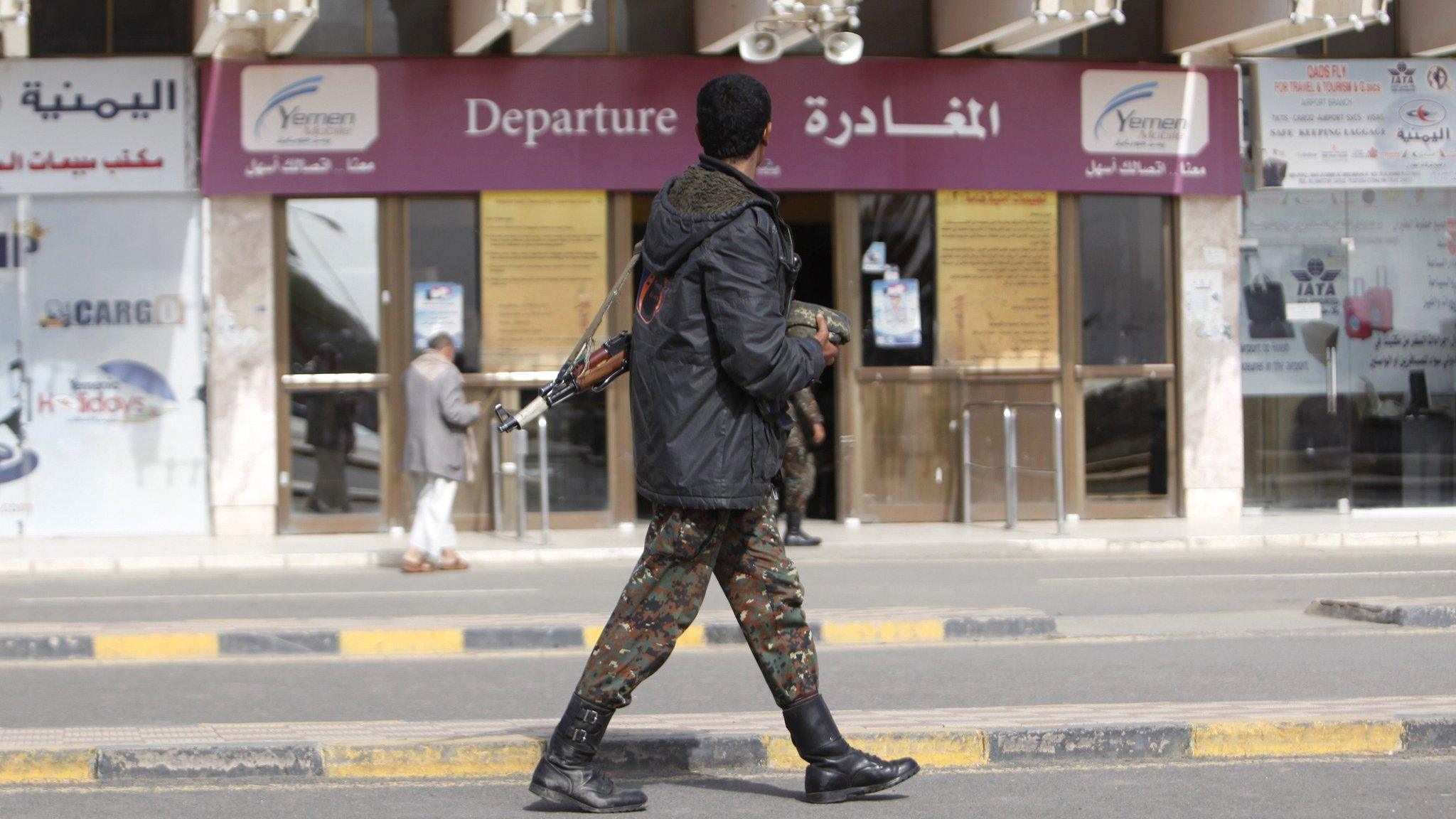Device charging advised for any UK flight
- Published
Ed Thomas explains how passengers can prepare before travelling
All passengers flying into or out of the UK are being advised to ensure electronic and electrical devices in hand luggage are sufficiently charged to be switched on.
Extra security checks came in at some UK airports last week for flights to the US, but these will now be extended.
The government says, external the checks apply to unspecified flights to and from the UK.
It comes after an apparent terror threat prompted the US to announce extra security checks last week.
But the Department for Transport (DfT) has now issued updated guidelines, saying: "In line with the US advice, passengers on some routes into and out of the UK may now also be required to show that electronic devices in their hand luggage are powered up or face not being allowed to bring the device onto the aircraft.
"Passengers flying into or out of the UK are therefore advised to make sure electronic devices being carried in their hand luggage are charged before they travel."
The department said that "for obvious reasons" it would not elaborate on the routes affected.
"We will work with the aviation industry to minimise disruption as far as possible," said a spokesman.

At the scene
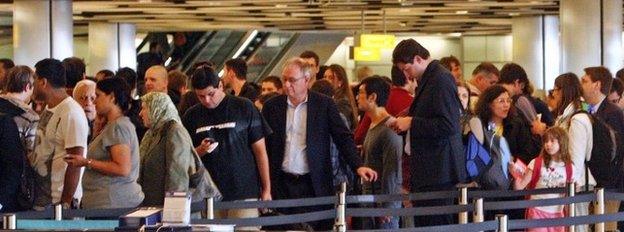
The BBC's Lyndsey Telford at Heathrow
It's business as usual at Heathrow as countless passengers stream through security, bound for flights all over the world.
Most seem unfazed by the ramped up measures and have come prepared, with only a handful at a cafe at Terminal 3 using the wall socket charging points to give their laptops, phones and tablets that last boost of power.
Matt Bowdidge, who is flying home to Brisbane, Australia, has his gadgets and wires strewn across a table as he finishes his coffee before heading for security.
"I want to make sure it's all fully charged," he says.
"But it's no big deal. No one likes a lot of hassle when they travel, but I would rather turn on my phone and laptop for security than be blown up in the sky."
It seems this is the general consensus.
And as Vladimir Durovcik, who is flying to Vienna, said: "We're all one civilisation and we do what we can, no matter how small, to make sure we are all safe."

'Terror organisations'
As well as mobile phones and laptops, the guidance set out by the DfT also includes a range of other electronic devices, external such as electrical shavers, travel irons, hairdryers, hair-straighteners and cameras or any other camera equipment.
Prime Minister David Cameron's official spokesman said the tightening of security measures at airports reflected "the fact that there are terror organisations that seek to do UK citizens, the UK and citizens of other countries harm".
UK Airport security
228m
passengers on international flights to and from the UK per year
91%
people over 16 use a mobile phone in the UK
-
20,000 fly daily from Heathrow to the US
-
4,500 charging points at Heathrow
-
40+ UK airports fly to international destinations
American officials ordered some overseas airports with direct flights to the US to intensify screening of electronic devices last week.
This prompted Heathrow and Manchester airports to advise US-bound passengers to charge electronic devices to be carried as hand baggage before travelling on Monday.
British Airways said customers with uncharged devices would not be allowed to fly, external and would have to rebook their flights or else leave their device behind and board their flight without it.
It said these passengers will either be able to collect the device on their return or have it forwarded to another address, at the airline's expense.
Virgin Atlantic said it would also store uncharged devices for customers at the airport.
But after initially saying the cost of returning devices rested with passengers, the airline later revised its decision and said passengers would not be charged.
Meanwhile, EasyJet said it was seeking clarification from government on the new regulations and had not, so far, issued any specific instructions to passengers.

Analysis
By Richard Westcott, Transport Correspondent
The government has to keep everything deliberately vague because it doesn't want to give away any secrets to terrorists.
So we simply don't know which routes are being scrutinised, which devices they are worried about, which airports are beefing up their checks, and so on.
Instead, we've ended up with some blanket advice about US flights last week that has now been changed again today.
My understanding is that this won't cause huge queues at security. They're unlikely to check your stuff if you're on a domestic flight or you're popping to France or Spain for your holidays.
You may remember the chaos when they banned liquids in 2006; this won't be anything like that.
In the end, if you stick to this rule, you'll be fine.
If you're getting on a plane today, make sure anything with a battery has some charge in it. And carry your charger in your hand luggage just in case.

Although the DfT said "some routes" into and out of the UK would be affected, specific details have not been released.
The travel editor of the Independent newspaper, Simon Calder, said: "I think it's extremely unlikely that a charter flight from Manchester to Malaga or from Glasgow to Crete is going to be targeted by the DfT for scrutiny.
"I can see however that flights to and from places with a recent history of terrorism - and I'm thinking here of maybe Egypt, maybe Kenya - there could well be added scrutiny for those flights."
He said an average of 20,000 people travelled from the UK to the US per day but warned that the approaching summer holiday season would increase numbers.

Airport security checks: Key questions answered
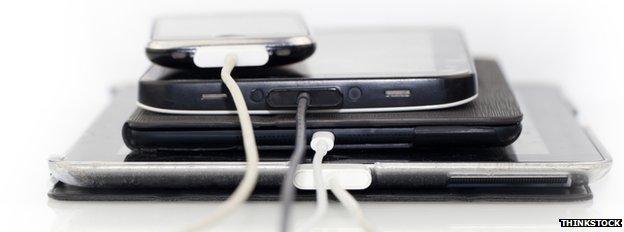
What are the new restrictions on charging devices?
Airline passengers entering and leaving the UK on potentially any route must be able to prove electronic and electrical devices in their hand luggage are sufficiently charged to be switched on when they get to security.
What gadgets are included?
The general advice applies to anything "with a battery", including mobile phones, MP3 players, electrical shavers, hair-straighteners, travel irons and cameras.
What will happen if a device is not charged?
Travellers with uncharged devices face having to rebook their flight. Alternatively they may be able to charge their device, post their device or leave it at the airport.

'Credible' terror threat
In a written parliamentary statement, external, Transport Secretary Patrick McLoughlin said the country faced "a constantly evolving threat from terrorism".
He said there was no change to the UK terror threat level, which remained at "substantial".
US officials said last week they were aware of a "credible" terrorist threat, but have not linked the security changes to any specific intelligence.
Analysts have suggested the action could be a response to efforts by Islamic militants in Syria and Yemen to build bombs that evade airport security checks.
- Published9 July 2014
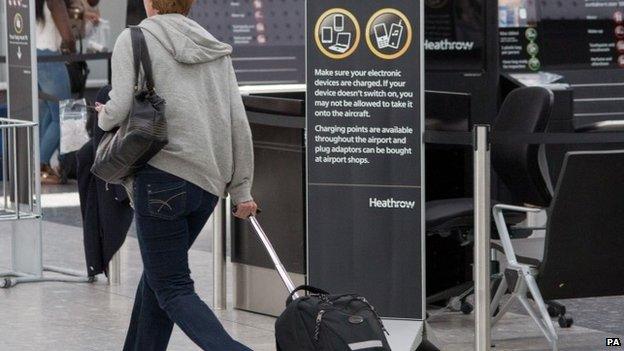
- Published9 July 2014
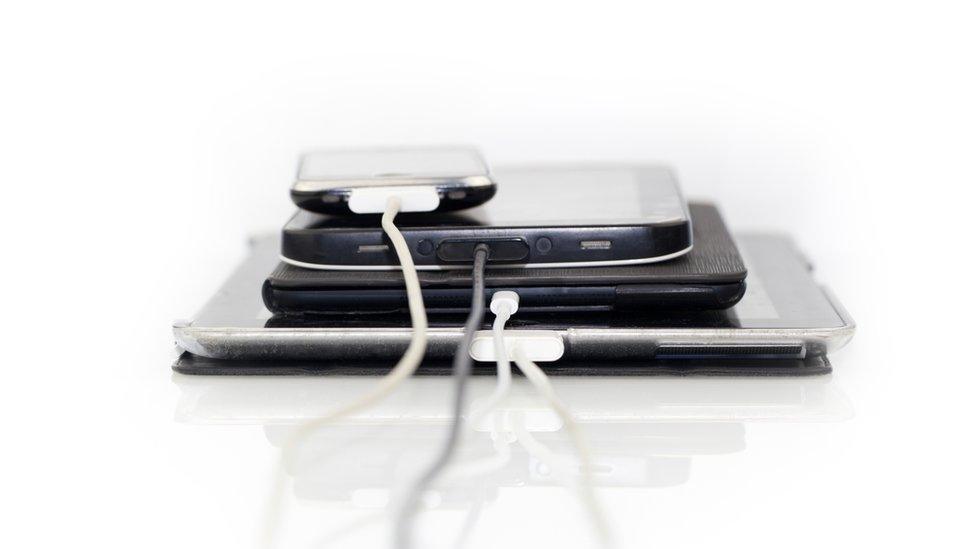
- Published7 July 2014
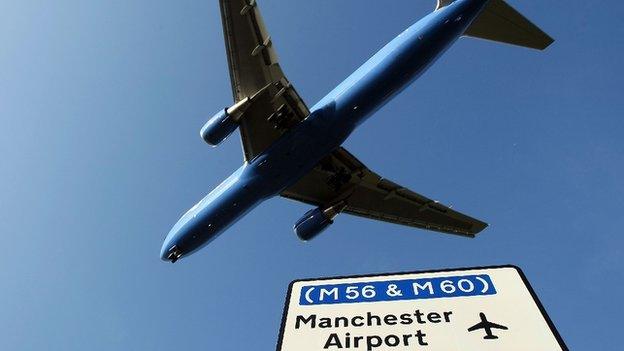
- Published6 July 2014
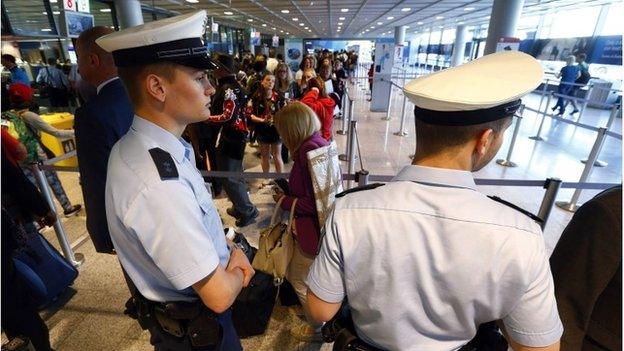
- Published4 July 2014
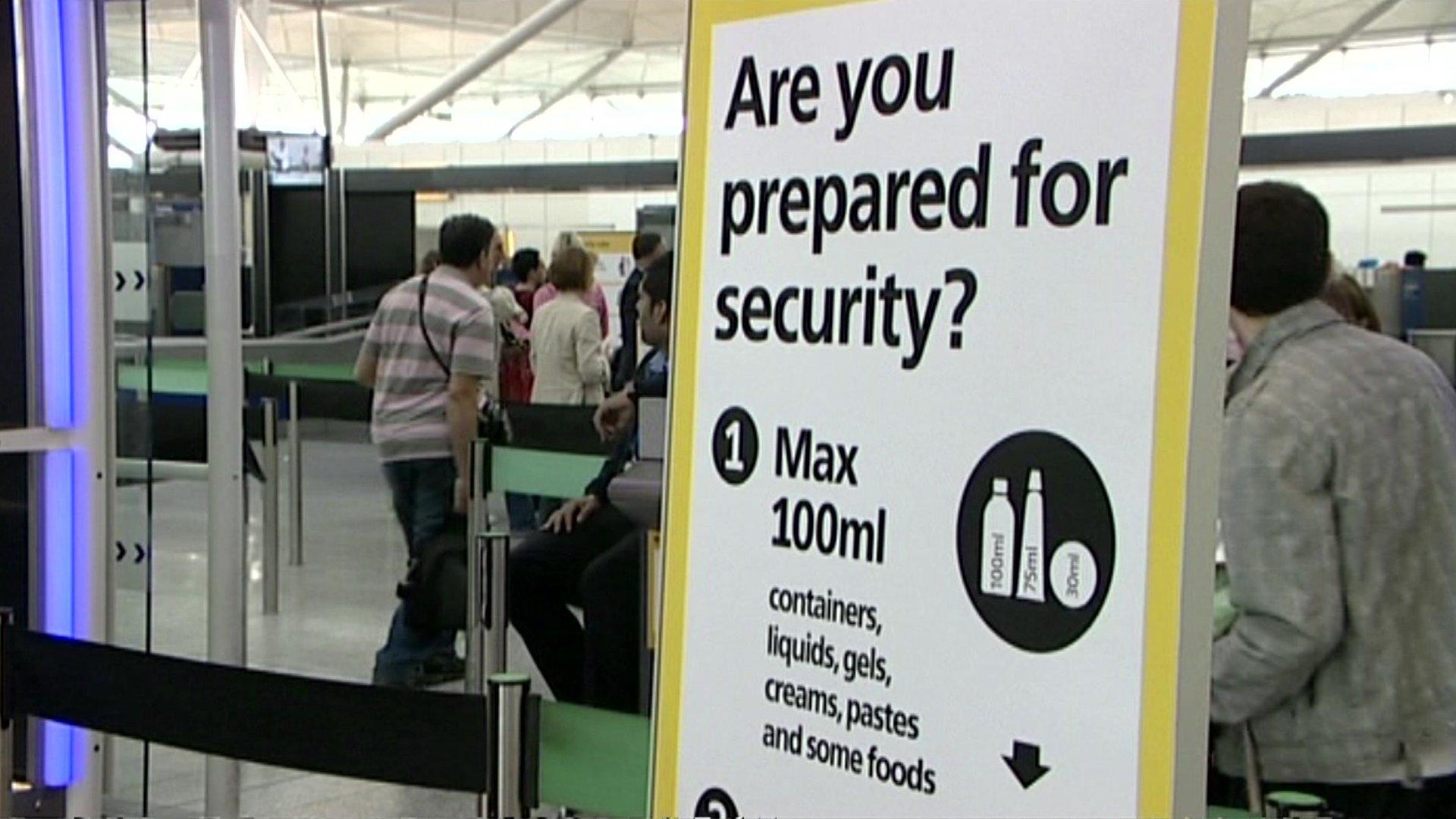
- Published3 July 2014
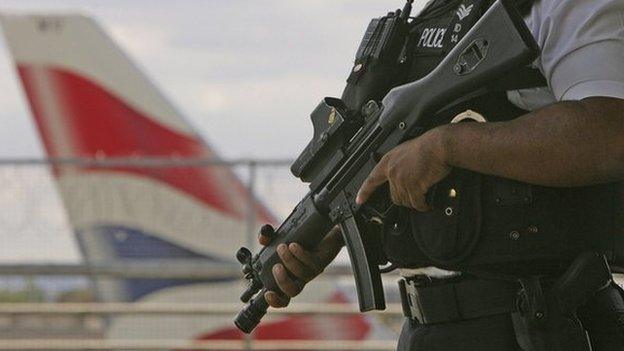
- Published4 December 2013
